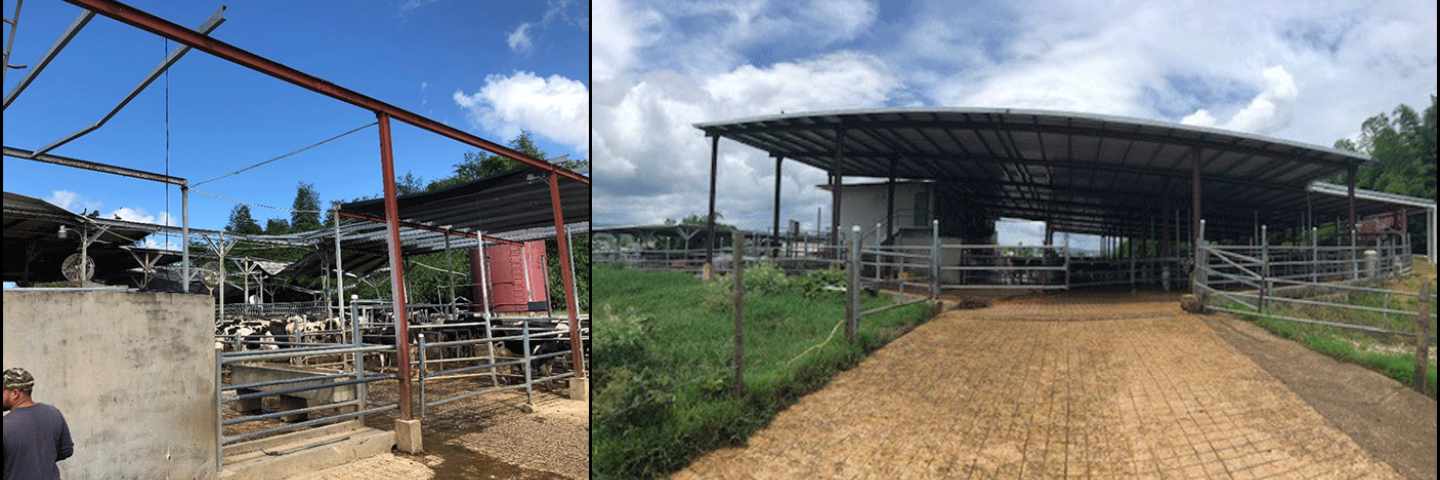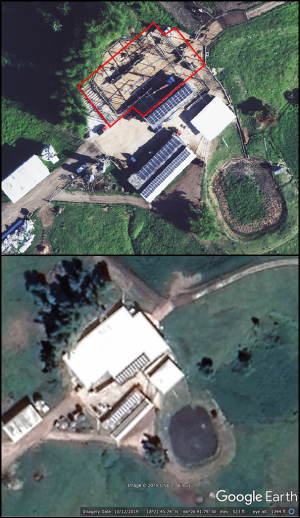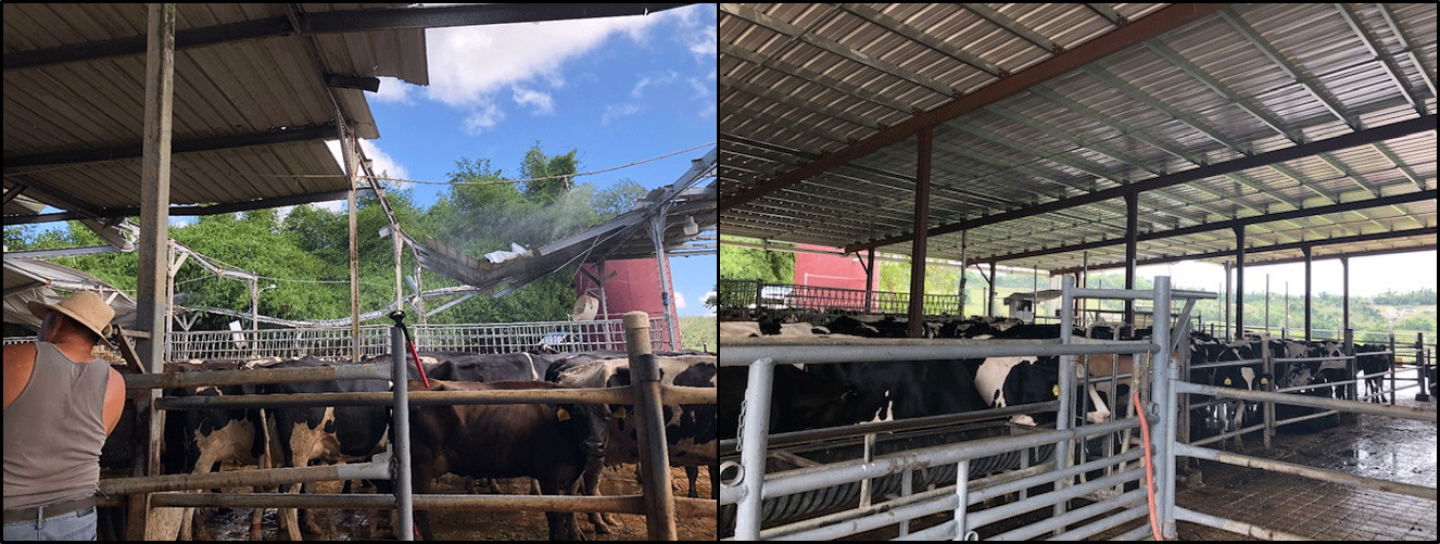Caribbean Emergency EQIP Success Story - Helping Puerto Rico’s Dairies Recover from Hurricane María

In the aftermath of Hurricanes Irma and Maria in Sept. 2017, NRCS Caribbean implemented emergency EQIP practices to help our farmers repair damages caused by the storms. Emergency practices included obstruction removal, roofs & covers, and clearing & snagging (debris from streams).

Three years after hurricane María, NRCS Caribbean Area is still working hard to help dairy farmers remove debris from collapsed structures and rebuild stronger to protect water quality. Two key conservation engineering practices assist with these efforts: Roofs and Covers (NRCS practice code 367) and Debris Removal (NRCS practice code 500).
The dairy industry is the number one farm industry in Puerto Rico. But confining dairy cows can potentially cause environmental problems if water is not handled properly on the farm. NRCS works with our dairy farmers to keep clean water clean by keeping rain water separate from the manure in animal confinement areas. A typical waste management system on a dairy farm consists of a waste storage pond and an irrigation system to spread the waste in the fields. After hurricane María, many dairies’ animal holding and feeding areas had their roofs destroyed. These areas were exposed to rain water, sending higher volumes of wastewater to storage ponds and increasing risks of wastewater overflow.
Building stronger and safer
One farm that NRCS assisted is Empresas Aulet dairy in Morovis, Puerto Rico. Empresas Aulet is owned by José “Pepe” Aulet, who started the dairy in July 1989 in Barahona ward. The 270-acre dairy farm milks about 250 cows, and they also farm about 128 acres in Vega Baja for hay production. NRCS helped the farmer replace around 14,000 square feet of damaged roofing, built to new and stronger standards to withstand higher wind speeds. Pepe is very happy with the new, stronger structure – his cows have the shade they need and the risk of water contamination is reduced.
“The assistance from NRCS has been of vital importance for the continuation of our farm and recovery from Hurricane María,” said Sr. Aulet.


